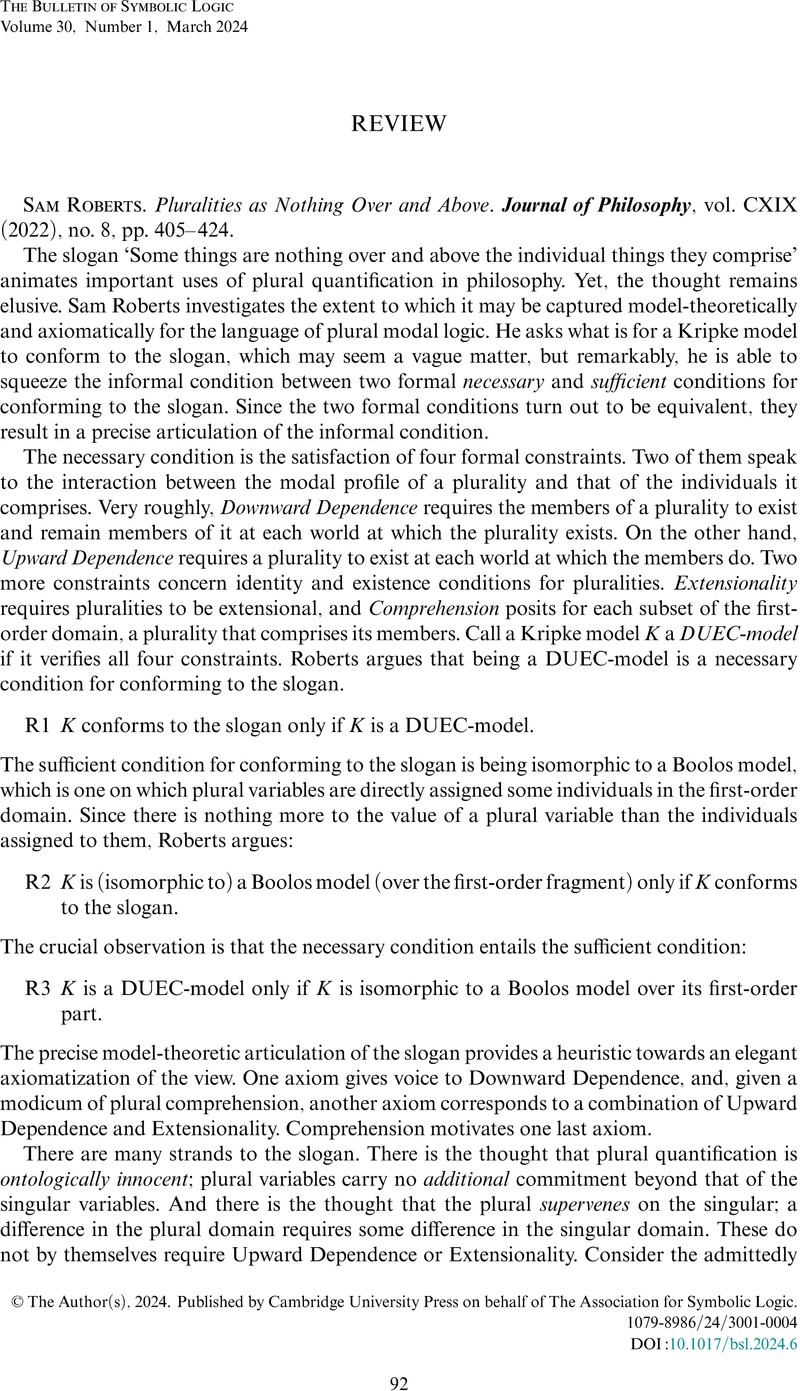No CrossRef data available.
Article contents
Sam Roberts. Pluralities as Nothing Over and Above. Journal of Philosophy, vol. CXIX (2022), no. 8, pp. 405–424.
Review products
Sam Roberts. Pluralities as Nothing Over and Above. Journal of Philosophy, vol. CXIX (2022), no. 8, pp. 405–424.
Published online by Cambridge University Press: 02 April 2024
Abstract
An abstract is not available for this content so a preview has been provided. Please use the Get access link above for information on how to access this content.

Information
- Type
- Review
- Information
- Copyright
- © The Author(s), 2024. Published by Cambridge University Press on behalf of The Association for Symbolic Logic


